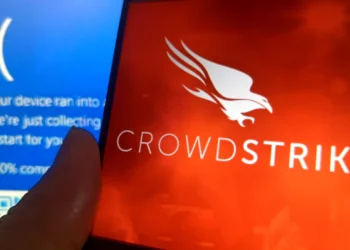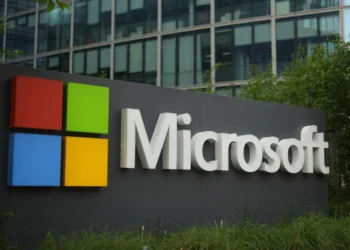The increasing trend of cyber fraud in Ghana is worrisome to many as the next victim could be any company or individual. The situation has taken a different dimension in the first half of the year as Dr Albert Antwi-Boasiako, the Director-General, Cyber Security Authority, disclosed that Ghana has recorded GH¢49.5 million direct financial losses through cyber fraud activities between just January and June this year.
The figure, though huge, constitutes only a fraction of cases reported to state agencies, while financial losses of unreported cases could exceed the amount reported so far. Dr Antwi-Boasiako announced this at the media launch of the National Cybersecurity Awareness Month (NCSAM) in Accra.
“We expect the media launch to set in motion a month-long national cybersecurity awareness creation that will assemble public and private sector players, cybersecurity professionals, the academia, and representatives from civil society organisations, in preparation for the NCSAM as we seek to encourage every Ghanaian to stay digitally alert.”
Dr Albert Antwi-Boasiako
Dr Antwi-Boasiako noted that although Ghana has made a lot of progress in creating public awareness on cybersecurity issues, there is the need to intensify awareness creation amongst the youth. He disclosed that the Authority received 41,285 contacts between October 2019 and July 2023 complaints from the public on cybercrime and other related activities. Of the figure, he said 41 per cent is online fraud including shopping fraud, romance fraud, online blackmail and identity fraud.
Dr Antwi-Boasiako, therefore, called for collective and individual responsibility in protecting oneself against digital fraud. He urged the public to contact the Authority’s toll free line 292 to report any issue concerning online fraud for prompt action.
Institutional Harmonisation and Integration
Dr Antwi-Boasiako also called for institutional harmonisation and integration of the work of state agencies collating statistics on arrests, prosecutions and convictions of persons involved in cyber fraud. The CSA Boss observed that global digitalisation trends have changed the way businesses conduct business. Therefore, he called on the government to create opportunities, and enabling interventions for economic growth.
Recent Statistics indicated that more than 62% (4.95 billion) of the world’s population have access to the internet. In Ghana, internet penetration has increased exponentially from 2.31 million in 2012 to 17 million users in 2022, representing 53% of the population.
Dr Antwi-Boasiako noted that cybersecurity awareness is a global initiative aimed at raising awareness about cybersecurity and promoting best practices for online safety.
Ghana started the National Cybersecurity Awareness in 2017 with the establishment of the National Cyber Security Week which subsequently evolved into a month-long event under the auspices of the then National Cyber Security Secretariat.
According to the Group Special Mobile Association (GSMA) Mobile Connectivity Index (MCI) 2023 report, Ghana is ranked 4th in Africa with a score of 51.4% depicting significant progress in connectivity over the past five years.
In the same report, Ghana had a score of 86.69% in Online Security (a key dimension of the index) consistent with the country’s score on the ITU’s Global Cybersecurity Index (GCI).
Ghana’s Internet Penetration Rate
Ghana’s internet penetration rate i.e, internet users in 2023 stands at 23.05 million representing 68.2% of the total population. Out of this, 6.6 million (19.5%) are active social media users contributing to the country’s 13th rank on the list of countries that spend considerable time on the internet.
Dr Antwi-Boasiako explained that Ghana’s effort at ensuring a culture of digital safety is borne out of the country’s cyber culture and societal dimension derived from the cybersecurity Capacity Maturity Model (CMM) assessment commissioned by the Ministry of Communications and Digitalisation in January 2018. The assessment was conducted by the Global Cyber Security Capacity Centre (GCSCC) of the University of Oxford in collaboration with the World Bank.
Key among the critical issues captured by the assessment included the lack of cybersecurity consciousness and awareness among the Ghanaian public. Also captured was inadequate security measures for government e-services with knowledge gaps in fundamental cybersecurity concepts.
Following these shortfalls, the CSA is seeking to leverage the NCSAM 2023 to address the concerns raised in the assessment hence the theme, ‘Promoting a Culture of Digital Safety’. This year’s theme highlights the importance of cultivating a collective mind-set and behaviour that values and promotes responsible online practices, cybersecurity awareness, and the protection of personal information.
Dr Antwi-Boasiako, moreover, called for collaborative efforts to harmonise the processes of public procurement in the public service to secure a judicious, economic, and efficient use of state resources and provide a streamlined mechanism for guaranteeing that cybersecurity service providers, establishments and professionals in the country execute their duties in accordance with approved international standards.
READ ALSO: Market Observers Predict the Cedi to Enjoy Steadiness Amidst Pull-Back Factors





















